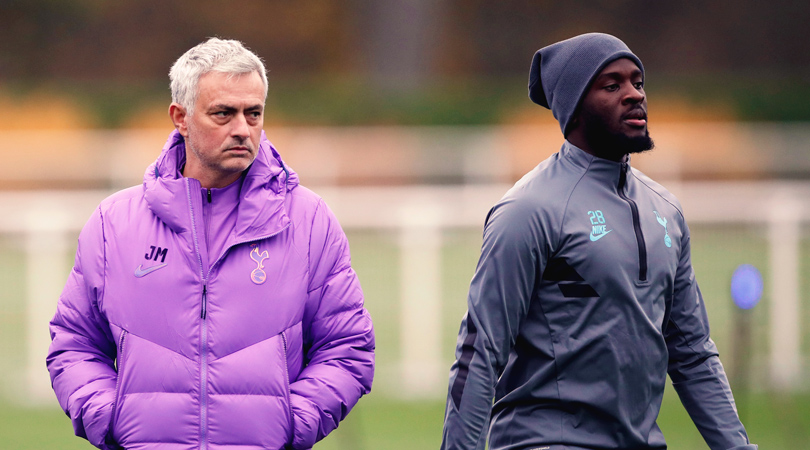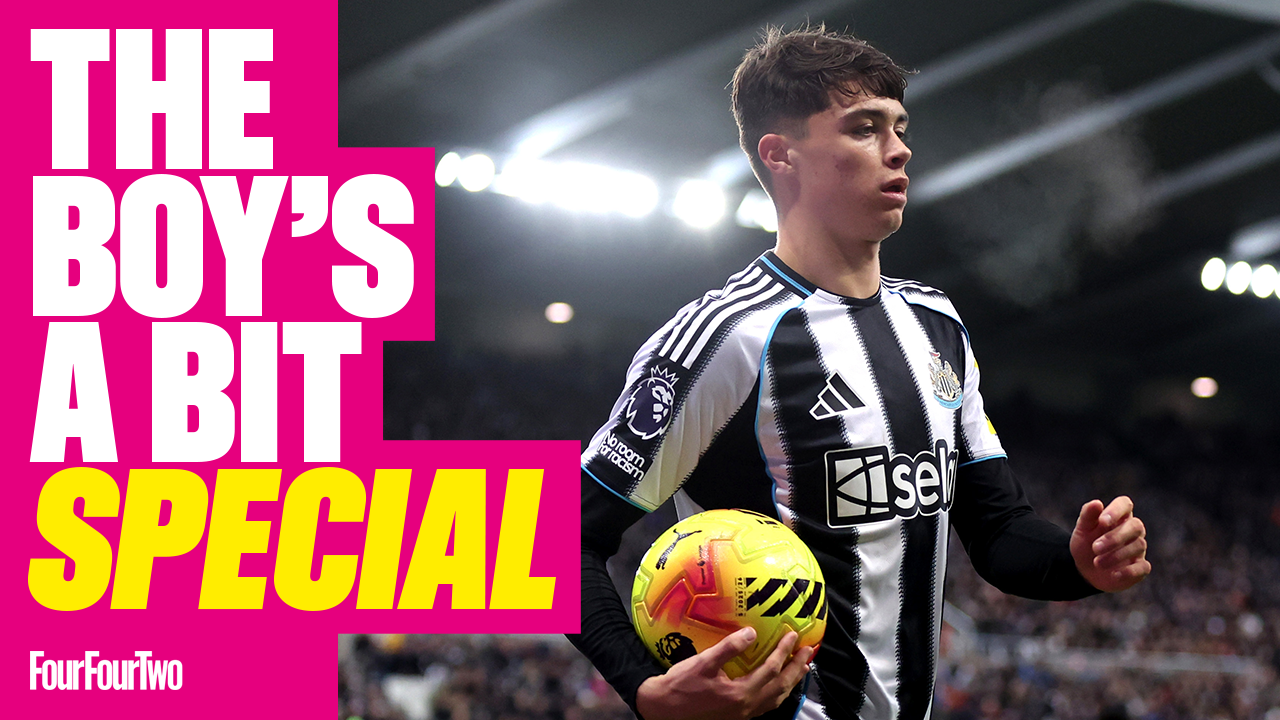Is public criticism a legitimate part of management – and when does it go too far?
Jose Mourinho publicly calling out his players is actually unusual these days - but it says a lot about how the game has changed

The best features, fun and footballing quizzes, straight to your inbox every week.
You are now subscribed
Your newsletter sign-up was successful
Want to add more newsletters?

Five times a week
FourFourTwo Daily
Fantastic football content straight to your inbox! From the latest transfer news, quizzes, videos, features and interviews with the biggest names in the game, plus lots more.

Once a week
...And it’s LIVE!
Sign up to our FREE live football newsletter, tracking all of the biggest games available to watch on the device of your choice. Never miss a kick-off!
Join the club
Get full access to premium articles, exclusive features and a growing list of member rewards.
Jose Mourinho’s public criticism of Tanguy Ndombele has re-emphasised an old issue. Whether Mourinho was actually critical is questionable, he really just verbalised a frustration which is widely shared and of which everyone is aware, but the reaction has highlighted again just what a sensitive issue the commentary around players can be.
To many, this is the third rail of modern football - the place where you must never, ever step.
But why?
Perhaps that fear is an indictment of the contemporary player. The logic seems to be that with wealth comes ego, with fame comes vulnerability, and the combination of the two makes today’s footballer uniquely delicate. Not necessarily mentally fragile, but incapable of processing any sort of correction to attitude or performance, unless it’s delivered in private and coated in synthetic niceties.
In the minds of most, a failure to do that begins a sequence of events from which there can be no recovery - football's doomsday countdown.
The player sulks and pouts. The relationship between him and his head coach deteriorates. Finally, he leaves the club, either in search of a situation where his flaws will be more indulged or because the club is no longer willing to tolerate the friction.
Arsene Wenger has spoken about this problem quite regularly. With money, he claims, came a retraction in managerial power. Once they were surrounded by millionaires, coaches saw their authority weaken, reduced to the point where their role was to merely persuade rather than demand.
The best features, fun and footballing quizzes, straight to your inbox every week.
The implication being that players can no longer be told what to do. They have to be convinced that whatever instructions they receive actually serve their best interest.
That's really what instructs this fear. The sight of a head coach standing in front of a television camera, telling cold, hard truths about an underperforming player has, over time, become a prelude to disaster. It is the very opposite of the conciliatory approach preached by Wenger and it triggers all sorts of neuroses in supporters
That reaction isn’t necessarily wrong, but it’s still too automatic – because it buys so wholly into this idea of footballers as cookie-cutter cliches. It depicts them as a homogenous group and not, as would be much more realistic, a society of contrasting personalities.
Jose Mourinho’s hope is presumably that Tanguy Ndombele responds to this admonishment in a healthy way. Whether that’s realistic is impossible to judge; not enough is known about him and, for now, it’s not even entirely clear what the issue is.
Is he struggling with the speed of English football? Is this an attitude problem? Is there an underlying complication that the public is unaware of? There are theories, one of which this column explored last week, but the situation remains vague and so, for now, it’s worth deferring judgement.
But as a principle, in the generalised sense, this can’t be so binary. Different managers have different ways of trying to influence their players, but they have this shared problem of diminishing control and – out of necessity – have all had to become more creative in pursuit of an effect.
One of the better pieces of man-management this season actually came from Chris Wilder, following Dean Henderson’s terrible mistake against Liverpool. In the aftermath, with Sheffield United having lost 0-1, Wilder was invited post-game to offer the usual platitudes in defence of his goalkeeper. To talk about how 'in credit' he was, what the team 'owed' him, and how quickly he'd 'bounce back'. Wilder didn’t. Instead he was blunt – “get over it, do better”, essentially – and Henderson has reacted brilliantly in the months since.
The conclusion is not that all managers should be that direct, or that every goalkeeper making a mistake needs to be treated in the same way. Instead, it’s that each situation has to be judged on its own merits, with proper deference to the personalities involved.
And public criticism is part of that sometimes. It has to be. Occasionally, only the humiliation that a player might feels as a result of that treatment is enough to disturb his sense of entitlement or defeat one of his bad habits.
It doesn't make it less of a risky strategy - of course not, the dangers are obvious - but in the modern-day (and without specific reference to Mourinho or Ndombele) it's an approach which needs the context of recognising what football has become.
While you’re here, why not take advantage of our brilliant subscribers’ offer? Get the game’s greatest stories and best journalism direct to your door for only £12.25 every three months – less than £3.80 per issue – and you’ll also receive bookazines worth £29.97!
NOW READ...
INTERNATIONAL UEFA Nations League explained: Everything you need to know about the new format
QUIZ Can you name every club Marcus Rashford has scored against?
GUIDE Premier League live stream best VPN: how to watch every game from anywhere in the world
Seb Stafford-Bloor is a football writer at Tifo Football and member of the Football Writers' Association. He was formerly a regularly columnist for the FourFourTwo website, covering all aspects of the game, including tactical analysis, reaction pieces, longer-term trends and critiquing the increasingly shady business of football's financial side and authorities' decision-making.
 Join The Club
Join The Club











